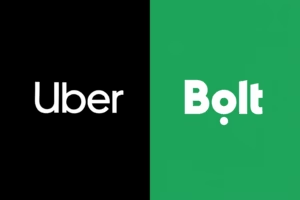The Gauteng High Court has delivered a decisive blow to former South African president Jacob Zuma, ordering him to repay nearly R29 million in state funds used for his private legal battles while serving as Head of State. The ruling, handed down by Judge Anthony Millar in Pretoria, could see Zuma’s assets and pension benefits attached if he fails to comply within the stipulated timeframe.
Court Orders Immediate Repayment
Judge Millar ruled that Zuma must pay R28,960,774.34 to the State Attorney, along with interest calculated at the prescribed rate on R18.9 million, accruing from 25 January 2024 until full payment is made.
Should Zuma fail to settle the judgment within 60 days, the court authorised the State Attorney to obtain a writ of execution for the attachment and sale of his movable or immovable property to recover the debt. This measure could extend to his presidential pension, or part thereof, pending a separate court order authorising its attachment.
State Attorney To Report Progress
In a further directive, the court instructed the State Attorney to submit an affidavit every three months, detailing steps taken or planned to recover the funds until the debt is fully paid. Judge Millar emphasised the importance of continued accountability in ensuring the state’s money is reclaimed.
Zuma’s Legal Defence Argues Unfairness
Zuma’s legal team insisted that their client had been wrongly burdened with the repayment, contending that the funds were disbursed from the public purse due to “wrong legal advice” received by the state.
They argued that Zuma did not personally act unlawfully and that the payments, though found unconstitutional, were not initiated through corruption. His lawyers maintained that he was, in fact, the victim of a flawed legal process rather than its architect.
Advocate Masuku: “It Is Not His Fault”
Defence counsel Advocate Thabani Masuku expressed disbelief that the state escaped responsibility while Zuma was left to face the financial consequences.
“It is not his fault that they made unlawful payments,”
Masuku said, adding that the outcome unfairly punished Zuma for actions taken by the state’s legal advisors.
He further warned that the enforcement of the order could have devastating consequences for the former president.
“He stands to lose his home and his pension if he is ordered to pay the money back, while this is all the State’s fault.”
Possible Consequences For Non-Compliance
If Zuma fails to comply with the order, the court has made clear that his properties, including movable assets and pension benefits, may be attached and sold to satisfy the debt. The decision reinforces the principle that public funds used for private legal purposes must be accounted for, even when involving a former Head of State.
Broader Implications
The ruling not only underscores the judiciary’s stance on accountability in the use of state resources but also signals a continued effort to address financial misconduct linked to high-profile political figures. Zuma, who has long been embroiled in legal controversies, now faces one of the most tangible financial consequences of his post-presidency.
The State Attorney’s office is expected to begin recovery proceedings should Zuma fail to settle the debt within the prescribed 60 days, marking another chapter in the former president’s long legal saga.

















